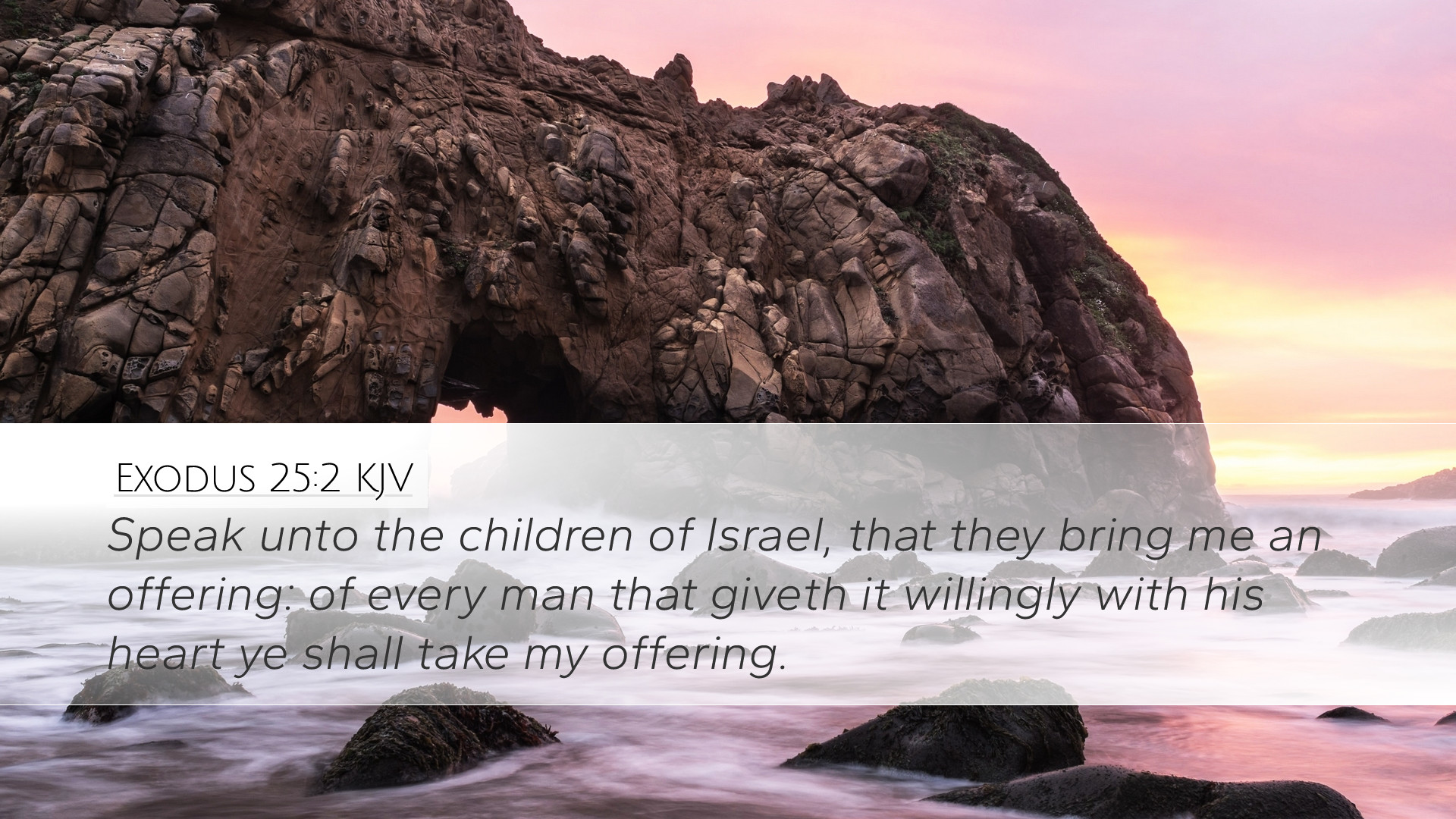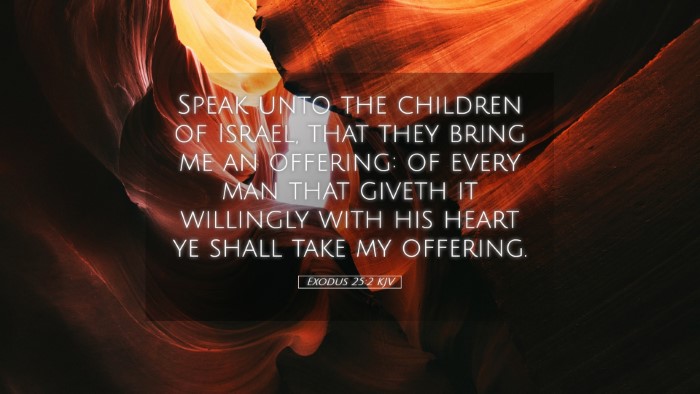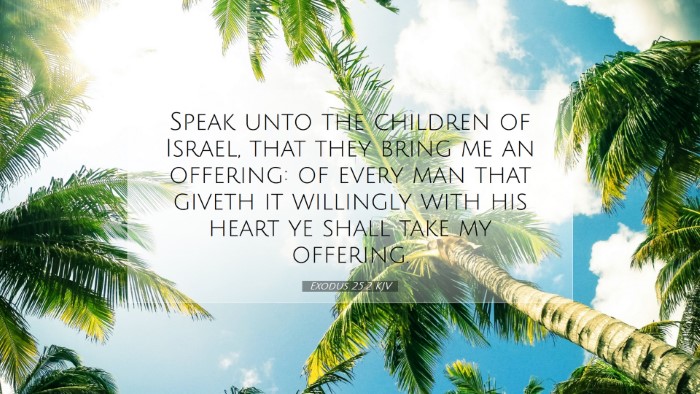Commentary on Exodus 25:2
Verse: Exodus 25:2
“Speak unto the children of Israel, that they bring me an offering: of every man that giveth it willingly with his heart ye shall take my offering.”
Introduction
Exodus 25:2 marks a significant invitation from the Lord to His people for the construction of the Tabernacle. This verse captures the essence of participation in divine work through voluntary giving.
The Call for Offerings
In this verse, God speaks to Moses, who is tasked with conveying His instructions to the Israelites. The nature of the offering is emphasized—those who give are to do so willingly and with a pure heart. This principle resonates throughout Scripture and lays a foundation for understanding the heart of giving in a spiritual context.
- Divine Initiative: God initiates this call for offerings. It showcases His desire for His people to engage with Him and take part in the sacred activities that will define their communal worship.
- Voluntary Participation: The stipulation that offerings should be given "willingly with his heart" reflects the spirit in which God desires generosity—not out of compulsion, but cheerfully.
Theological Reflections
This invitation to give illuminates several key theological themes:
- God’s Ownership: The first point is the acknowledgment of God’s ownership over all things. The offerings demanded are not for God’s benefit but for the benefit of the community and their relationship with Him.
- Heart of Worship: God seeks the heart behind the act. The emphasis on willingness suggests that God values not just the act of giving but the condition of the giver's heart. In this light, true worship encompasses both spirit and truth (John 4:24).
Insights from Commentaries
Matthew Henry: Henry emphasizes the importance of the willing heart in giving, highlighting that it is not just the act of giving but the intention behind it that pleases God. He notes that the offerings needed were to facilitate the presence of God among His people, indicating that God desired to dwell within a community that reflects His holiness through their sacrificial contributions.
Albert Barnes: Barnes points out that this is a divine command rather than a human suggestion. He stresses that the call for gifts implies gratitude towards God for His mercies. The requirement of willing hearts aligns with the New Testament's principles of giving, encouraging believers to give liberally and joyfully, reminiscent of 2 Corinthians 9:7.
Adam Clarke: Clarke interprets this passage by dissecting the nature of the offerings. He suggests that God specifically desires those who purpose in their hearts to give and differentiates between obligatory giving and that which comes from a genuine desire to contribute to God’s work. This distinction reverberates through time, reminding believers that giving should stem from love rather than obligation.
Application for Today
This verse challenges contemporary readers to reflect on their motivations for giving. It calls pastors, churches, and believers to foster an environment where generosity flows from a spirit of love and commitment to God's purposes:
- Encouragement in Generosity: Believers today should be encouraged to give generously, understanding that every act of giving can further the mission of the Church and draw people closer to God.
- Foundational Principle: The heart behind giving should be cultivated. Churches should teach that stewardship is a discipleship matter, encouraging individuals to pray and seek God’s guidance in their giving.
Conclusion
Exodus 25:2 is not merely a command for offerings; it lays the groundwork for understanding the relationship between God and His people built on willing participation. Through the insights of Matthew Henry, Albert Barnes, and Adam Clarke, we see that the heart's condition matters profoundly in the life of faith. As we engage with this scripture, let us embrace the call to give from a willing heart, recognizing that such acts of generosity are a crucial expression of our worship to God.


